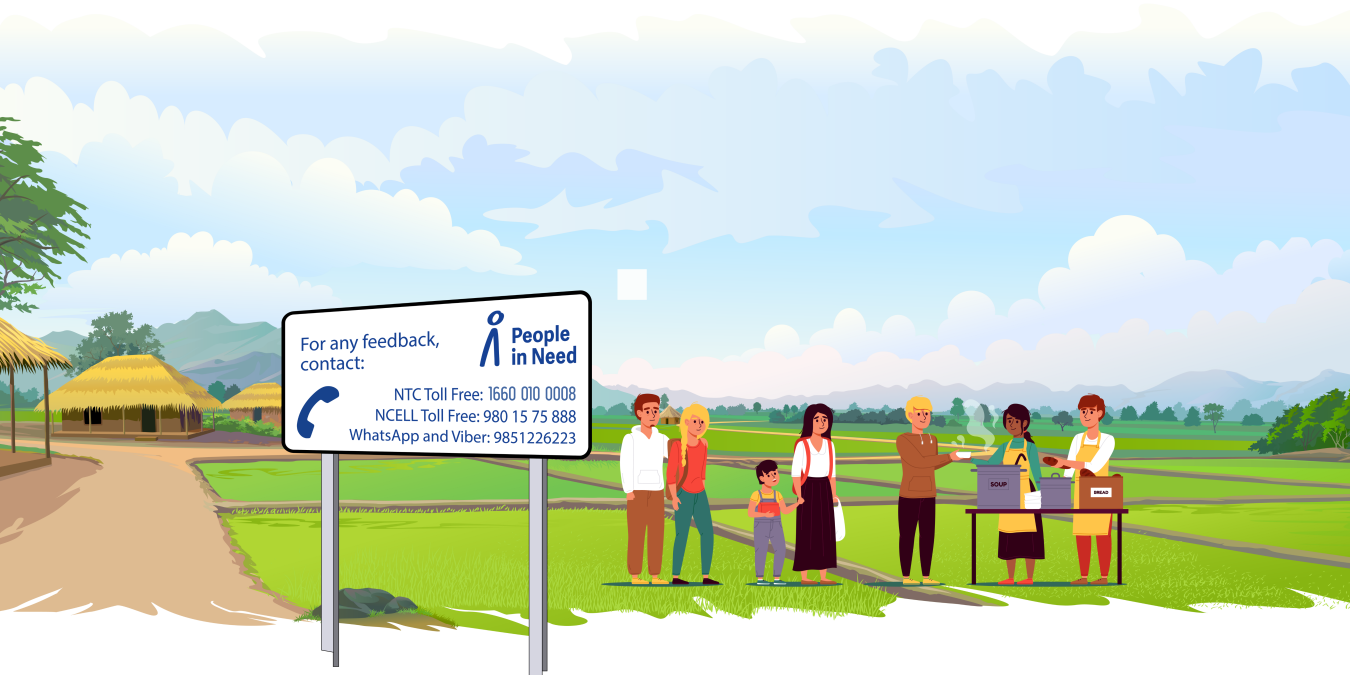People in Need’s Community Feedback and Response Mechanism
Published: Apr 5, 2023 Reading time: 3 minutes Share: Share an articleHave you ever had an experience where you wanted to give feedback on a service or program but didn't know how to do so effectively?

Many people face this common dilemma, especially regarding humanitarian organisations working in communities. Fortunately, People in Need (PIN) Nepal and Georgia are working on a ground-breaking project supported by PIN’s Real Aid to improve their Community Feedback and Response Mechanisms (CFRMs), making it easier for community members to share their experiences and for PIN to respond to them.
This project delves deep into the modalities, challenges, best practices, and lessons learned from CFRM implementations across PIN country programmes and projects. The project’s ultimate goal is to strengthen accountability, transparency, and program quality and services and to build trust within the communities we serve. And the best part is that we will achieve our goal by listening to the community and valuing their feedback.
A Community Feedback and Response Mechanism can be a powerful tool that allows community members and project participants to share their experiences with humanitarian organisations like PIN. At PIN, we believe in the power of human values, and we know that listening to feedback and ensuring we respond appropriately are some of the best ways to build trust within a community. We have established a comprehensive feedback and response mechanism that enables the community to report any misconduct or abuse they may have experienced or witnessed. This mechanism covers potential misbehavior by our employees or partners, corruption, harassment, and physical abuse.
At PIN, we take all feedback seriously and work to find respectful, just, and fair solutions to issues raised by the community. There are many ways to provide feedback to PIN, including calling our hotline, sending an email, texting directly, dropping a note in the suggestion box, or using our feedback postcards. Feedback can also be provided anonymously through our social media pages, including Viber or WhatsApp. PIN guarantees confidentiality and respect for all feedback we receive.
At PIN, we consider community feedback essential to improving the quality of our programs and services. We carefully read all feedback we receive and take steps to correct any mistakes or address any concerns. Through our research project, we aim to gain insights that will enable us to strengthen our CFRM mechanism further and reflect our commitment to human values.
The project has already initiated the process of digitising the CFRM in both our Nepal and Georgia country programs. We have also continuously promoted and disseminated messages and materials related to CFRM to relevant stakeholders. We have appointed dedicated focal points for CFRM and increased the budget for CFRM activities, among other measures. Many PIN country programs already use resources such as training manuals, videos, and leaflets to conduct training and awareness-raising activities on CFRM.
It's a reminder that we all have a role to play in building a better future for everyone, and that starts by listening to each other and valuing our feedback.
However, implementing a CFRM is easier said than done, particularly in organisations like PIN. Challenges include a lack of awareness of CFRM and its importance, inconsistent government complaint systems, gender disparities in reporting, negative attitudes toward complaints, and limited resources.
But hope is not lost! Research suggests promising strategies to improve CFRM implementation, including raising awareness, offering proper training and guidance, allocating adequate budgets, upgrading data management systems, consulting with the community, and regularly evaluating the system's efficacy. In addition, at PIN, we can collaborate with local governments to establish CFRMs and share knowledge and resources via learning platforms to adapt the system to different needs.

